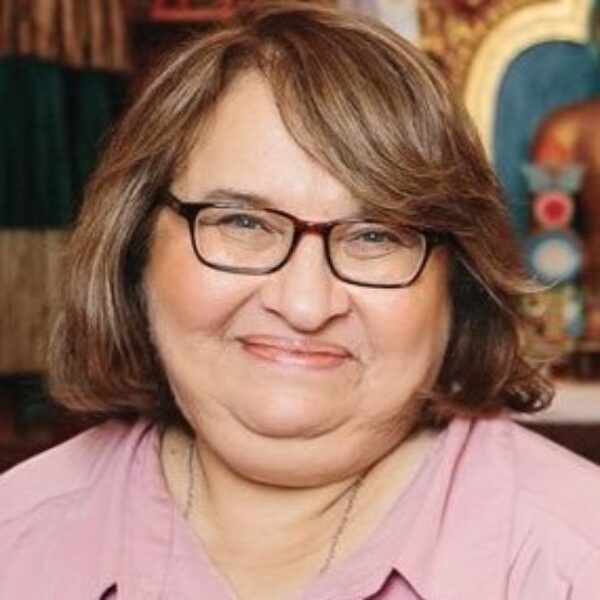Cupping Our Hands to Grace
The evening of the Pope’s appearance in Central Park, I went to a local coffee shop for dinner. The place was packed. It seemed to me that everyone — aside from me — had come from lining up for many hours in Central Park to have a glimpse of the pontiff.
Looking back on the day and what had happened to them in light of their hopes and the considerable effort they put into being there, people came together and leaned over the backs of booths to chat with total strangers. Folks seated at separate tables started up group conversations: “Where were you standing?” “What time did you get there?” “How was it from where you were?” “What do you think?”
A woman called out that she had video, though she confessed that she had been so nervous at one point she pointed her camera down and inadvertently cut off the pontiff’s head. A group of us huddled around her table to see the Pope: whole, then just his torso, then head and torso rejoined. The manager of the restaurant came over and said he’d give her his email address if she’d only send the video. Several people joined his request.
Regardless of my agreement or disagreement with the Pope on any of his positions, and regardless of whom he met with or didn’t meet with, it was a remarkable sight to behold this pop-up, awe-filled community — lit up not around a rock star or a political figure, but a religious leader.

This reminded me of the Hindu concept of darshan. Darshan comes from a Sanskrit word, darsana, meaning a sight or vision. In the Hindu faith, darshan is an experience arising from the sight of a holy being or the statue of a deity. Sometimes a darshan can even come from a natural spectacle, a sudden rainbow appearing at the funeral of an enlightened being, for example.
The darshan of a living guru is quite venerated, so much so that people will wait in lines for hours for a glance lasting a few moments. I’ve done it myself, many times, in my years of living in India or during the times I’ve gone back to Asia to visit Nepal or Tibet.
If the viewer is in the right frame of mind — present, open, attentive, free of impatience — the experience is considered to bring the viewer a blessing. Darshan is said to be a way to open the door to profound connection to something bigger than our day-to-day worries and concerns, to open ourselves to grace.
But notice, it all still depends on the mind state of the viewer. We need to be present, open, attentive, and free of impatience. If we’re in that state, some would say grace abounds even without the presence of a living guru or a statue. My friend Krishna Das quotes a Hindu saying:
“The grace of God is coming down upon us all the time, like a gentle rain, but we forget to cup our hands.”
As a Buddhist practitioner, I don’t usually use language about God. It’s not the way I am accustomed to thinking about things. But I love the image of needing to cup our hands. I do use language about moments of profound connection, unbounded love, the mind/heart unconfined, with infinite compassion as our capacity. Here, too, we can’t make it so, but we need to cup our hands to access what could be a different way of being.
I didn’t have the darshan of the Pope, but I had the darshan of the coffee shop.
I think it is safe to assume that I have a different spiritual background than many, even most in that shop. Very possibly I have different beliefs and positions about a lot of things too. But I was really happy for their joy, their tenderness, their sense of feeling blessed. In a world so divided by views and so riven by envy, it’s a blessing in itself to feel happy for others’ darshan.
Someone just told me recently that there is a word in German for envy of someone else’s breakfast. While that’s pretty specific, I think it sums up a lot of what the world feels like a lot of the time these days. And that made it extra special to rejoice in the expansive and joyous experience of a group of strangers.
